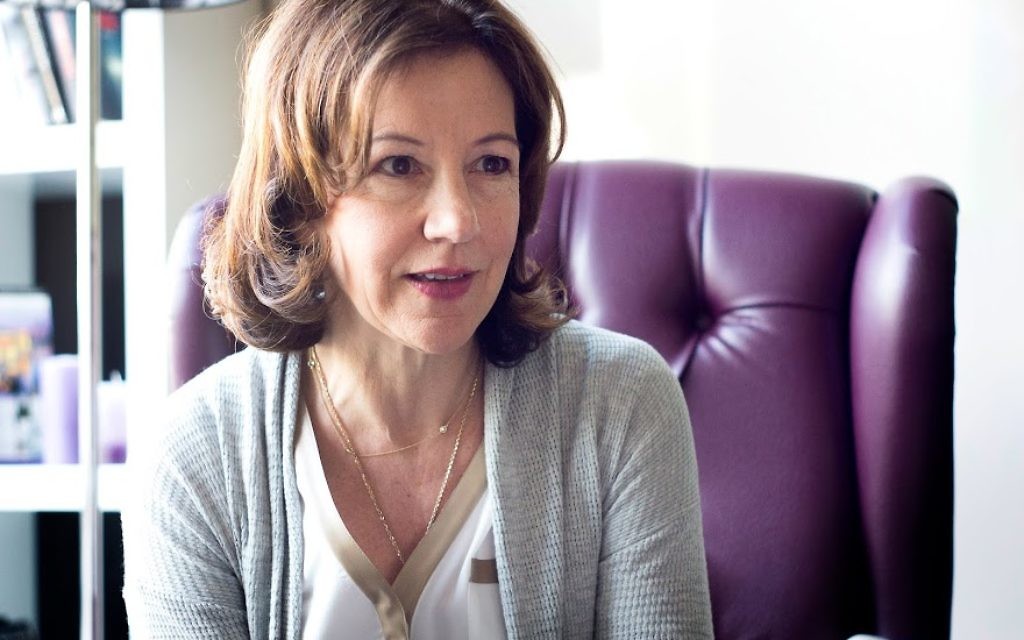Love Conquers Nazis, Hungarian Anti-Semites
Christian conversion also is part of writer Marianne Szegedy-Maszak's family history.
An American journalist with deep roots in Jewish Hungary visited Atlanta the week of Yom HaShoah and spoke to the AJT about her unusual family history.
Marianne Szegedy-Maszak, a senior editor at Mother Jones, wrote the book “I Kiss Your Hands Many Times: Hearts, Souls, and Wars in Hungary,” a harrowing account of her parents’ turbulent life there before their escape to the United States.
Szegedy-Maszak was in Atlanta to attend the Gathering for Gardner Conference and to host a Georgia Tech event featuring Ernő Rubik, the Hungarian inventor of the iconic Rubik’s Cube, with whom she is collaborating on a book. “I’m helping him write a proposed memoir,” she said as we sat in the lobby of the downtown Ritz-Carlton, where much of the conference took place. “Because of my Hungarian connections, I got to know Rubik. He is a great thinker, and they sometimes need writers a little bit.”
Get The AJT Newsletter by email and never miss our top stories Free Sign Up
Her parents, Aladár and Hanna, met in Budapest in 1940, but it took five years for them to be together and marry after significant struggles.
Her father, a gentile and an up-and-coming diplomat, was arrested for anti-Fascist activities and sent to Dachau when Hitler’s army invaded Hungary in March 1944. He had grown up in a culture of anti-Semitism but made a dramatic about-face after witnessing the reality of Nazism in the early 1930s.
“He was born in 1903 and grew up in a very Christian family in this milieu of anti-Semitism, which was blaming Jews for being responsible for a lot of Hungary’s ills and seeing them as the enemy,” Szegedy-Maszak said.
“His first posting was in Berlin in 1932, coincidentally during the start of the rise of Hitler, and he attended the Nuremberg rallies and receptions where Hitler was present. But any vestiges of anti-Semitism that remained in him disappeared when he saw what this regime was doing,” she said.
In addition, she said, “desperate Hungarians who had businesses in Berlin” were seeking the help of the Hungarian diplomatic mission because the Nazis were taking their guns and threatening them with jail. “He realized how poisonous this all was. So that all made him philo-Semitic, eventually quite literally, and anti-Nazi. A very dramatic eye-opening.”
Szegedy-Maszak said her mother was born Jewish but converted to Christianity, along with her family, to avoid persecution. They fled to Portugal when the Nazi army arrived in Hungary, while Aladár languished in Dachau.
“There was a brief communism period right after World War I, and the head of the red terror was a man named Béla Kun, from the provinces, and so the Communists in Hungary were mostly identified as being Jews. This was a period of tremendous anti-Semitism in Hungary. It was always festering, but now it started coming into full flower,” Szegedy-Maszak said.
“My mother was part of the largest Jewish industrialist family in Hungary, that of Manfréd Weiss. At a certain point, 10 percent of the Hungarian GDP was the family’s,” she said. “The largest national minority in Hungary was the Jews, who also happened to hold a lot of the professional positions: lawyers, doctors, factory owners, industrialists. That, combined with the Communists’ defeat, ended up triggering an extraordinary period of anti-Semitism which the Jewish aristocracy was faced with.”
Aladár and Hanna reunited in Budapest at war’s end, and after their wedding they moved to Washington, D.C., where their three children were born. Aladár Szegedy-Maszak went on to become Hungary’s ambassador to the United States.





comments